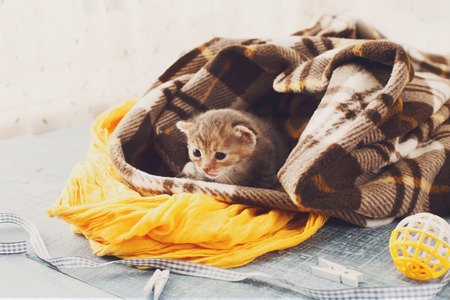Introduction to Pet First Aid in the UK
For every responsible pet owner in the UK, having a well-stocked pet first aid kit is not just a convenience—its an essential part of caring for your furry family members. British pets face unique risks, from countryside walks where ticks and adders are common hazards, to urban areas where glass or litter can cause injuries. The unpredictable weather, ranging from chilly winters to sudden heatwaves, also adds another layer of complexity to pet safety. Understanding these local factors shapes how we prepare for emergencies and highlights why every UK household with pets should be equipped with a tailored first aid kit.
Unlike human first aid kits, those designed for pets need to address specific issues such as paw injuries, insect stings, and even rare but dangerous encounters with wildlife. Pet ownership in the UK is often intertwined with an active outdoor lifestyle and a strong sense of animal welfare. This cultural emphasis on wellbeing means that readiness is key—whether you’re taking your dog for a stroll through the Peak District or letting your cat explore the garden.
The following table illustrates some common risks faced by pets across different parts of the UK and why your first aid kit should be prepared accordingly:
| UK Region | Common Risks | First Aid Kit Considerations |
|---|---|---|
| Countryside (e.g., Yorkshire Dales) | Adders, ticks, barbed wire | Tweezers for tick removal, bandages, antiseptic wipes |
| Coastal Areas (e.g., Cornwall) | Saltwater ingestion, sharp shells | Saline solution, paw protectors |
| Urban Locations (e.g., London) | Broken glass, traffic accidents | Wound dressings, emergency contact card |
By understanding these regional differences and being mindful of the UKs unique environment and culture, you can ensure your pet first aid kit is not only comprehensive but truly fit for purpose—helping you act fast and confidently when it matters most.
Essential Items for a UK Pet First Aid Kit
When it comes to pet safety, preparation is everything—especially for British pet owners who frequently encounter unique local hazards, from muddy countryside rambles to city park strolls. Equipping your pet first aid kit with the right supplies ensures you’re ready for minor mishaps or emergencies. Here’s a practical rundown of essentials tailored to UK environments and pet lifestyles.
Core Supplies Every UK Kit Needs
| Item | Purpose | UK-Specific Tips |
|---|---|---|
| Sterile Gauze Pads & Bandages | For covering wounds and controlling bleeding | Choose waterproof types for rainy walks |
| Cohesive (Self-Adhesive) Bandage | Keeps dressings secure without sticking to fur | Ideal for muddy or wet conditions common in the UK |
| Antiseptic Wipes/Spray (Pet Safe) | Cleans wounds and prevents infection | Always opt for formulas safe for animals, not just humans |
| Tweezers & Tick Remover Tool | Remove splinters or ticks after countryside outings | Essential for rural and woodland areas in Britain |
| Blunt-Ended Scissors | Cut bandages safely around fur and skin | Pack sturdy scissors that can cut through thick coats |
| Paw Balm or Vaseline | Protects paws from salt, grit, and cold during winter walks | A must-have for icy pavements in the UK winter months |
Additional Must-Haves for British Lifestyles
- Muzzle: For safe handling if your pet is in pain—choose an adjustable one suitable for your breed.
- Emergency Contact Card: List your vet’s number, out-of-hours services, and the RSPCA emergency helpline.
- Foil Blanket: Useful for keeping pets warm if they go into shock, particularly after cold water accidents or chilly weather incidents.
Tailoring Your Kit to Common UK Scenarios
If you regularly walk in the Lake District or Scottish Highlands, include a tick remover and extra gauze pads. For city dwellers, focus on paw protection against urban grit and glass. Consider seasonal needs too: antihistamines (vet approved) are handy during high pollen counts, while saline pods help rinse eyes exposed to sand or dust on windy coastal days.
A Quick Reference Table for Your Kit Setup
| Environment | Additions to Consider |
|---|---|
| Countryside/Forests | Tick remover, extra tweezers, antiseptic spray |
| Cities/Towns | Paw balm, booties, saline pods for eye rinsing |
| Coastal Areas | Sunscreen (pet-safe), saline pods, foil blanket for wind chill |
The right first aid kit not only offers peace of mind but can make all the difference when every second counts. Keep your supplies up-to-date and tailor them to your lifestyle so you’re always ready—rain or shine, field or footpath.

3. Choosing and Sourcing Pet-Safe Supplies
When assembling your pet first aid kit, sourcing the right supplies is crucial to ensure safety and effectiveness. In the UK, you have access to a range of reputable retailers, pharmacies, and specialist pet shops that stock pet-safe products compliant with local regulations. Below are practical tips for UK pet owners on how to choose and where to buy these essential items.
Where to Source First Aid Items in the UK
| Source | What They Offer | Tips for Buying |
|---|---|---|
| UK Pharmacies (e.g., Boots, Lloyds) | Basic medical supplies such as bandages, saline, tweezers | Always check if products are suitable for pets by consulting staff or checking packaging |
| Pet Shops (Pets at Home, Jollyes) | Pet-specific first aid kits, antiseptic sprays, tick removers | Choose items labelled as veterinary approved or pet safe |
| Online Retailers (Amazon UK, Viovet) | A wide selection including niche or specialist items | Select UK-based sellers and read reviews for quality assurance |
Guidance on Selecting Pet-Safe Products
- Read Labels Carefully: Look for items specifically marked as safe for animal use; avoid products containing human-only ingredients like paracetamol or ibuprofen.
- Consult Your Vet: Before purchasing topical creams or medications, ask your local veterinary practice for recommendations suited to your pet’s species and breed.
- Avoid Expired Products: Always check expiry dates, especially when buying discounted bundles from third-party sellers.
Essential Pet-Safe Items Checklist
- Paw-safe antiseptic wipes (chlorhexidine-based)
- Cotton wool pads (non-linting)
- Bluetack-free adhesive tape
- Tweezers with rounded ends
- Thermometer with flexible tip (digital preferred)
Tip:
If you’re unsure about a product’s suitability, speak with staff at reputable UK pet shops or consult your veterinarian before adding it to your kit. Prioritise items that are vet-approved and avoid multi-purpose human remedies unless your vet explicitly advises they are safe for pets.
4. How to Use Your Pet First Aid Kit: UK Scenarios
Being a responsible UK pet owner means knowing how to respond swiftly and effectively when emergencies strike. Here’s practical guidance on using your pet first aid kit for incidents that are all too familiar across Britain—such as adder bites, road traffic accidents, and unpredictable British weather conditions.
Adder Bites
Adders are the UKs only native venomous snake, commonly found in rural areas during warmer months. If your dog is bitten:
| Action | Details |
|---|---|
| Keep Your Pet Calm | Restrict movement to slow venom spread. Carry your pet if possible. |
| Clean the Wound | Gently wipe with saline from your kit; do not apply a tourniquet or attempt to suck out venom. |
| Seek Veterinary Help | Contact your vet immediately and describe the incident. Most UK vets are familiar with adder bites. |
Traffic Injuries
With busy roads throughout the UK, pets—especially cats and dogs—can be at risk of road traffic injuries. Here’s how to act:
| Step | Description |
|---|---|
| Ensure Safety | Move yourself and your pet away from traffic if it’s safe to do so. |
| Muzzle If Necessary | Pain may cause aggression; use a soft bandage or muzzle from your kit if safe. |
| Control Bleeding | Apply pressure with gauze pads or a clean cloth. |
| Immobilise Limbs | If you suspect fractures, use a splint or padding from your kit. |
| Transport Carefully | Use a blanket as a stretcher and get to your vet without delay. |
Weather-Related Emergencies
The UKs unpredictable weather poses unique risks. From heatwaves in summer to icy winters, preparation is vital:
Heatstroke (Summer)
- Move your pet into shade or a cool area immediately.
- Dab paws and ears with cool (not cold) water using sponges from your kit.
- Offer small amounts of water frequently; avoid forcing them to drink.
- Contact your vet for further advice—heatstroke can be fatal.
Icy Conditions (Winter)
- If paws are affected by grit or salt, rinse them gently with warm water from your kit’s bottle.
- Treat minor cracks or cuts with antiseptic wipes and cover with a paw pad dressing.
- If your pet appears hypothermic (shivering, lethargy), wrap them in a foil blanket from your kit and seek veterinary attention promptly.
Key Takeaway:
Your well-stocked first aid kit, paired with calm, informed actions, can make all the difference in safeguarding your pet’s wellbeing during these common UK emergencies. Always follow up with professional veterinary care after any significant incident.
5. Staying Prepared: Maintenance and Updates
Keeping your pet first aid kit up to date is just as important as assembling it in the first place. In the UK, where weather and environmental conditions can change rapidly throughout the year, regular maintenance ensures you’re always ready for emergencies. Below, we’ll cover best practices for checking, updating, and personalising your kit, so it’s always tailored to your pet’s needs and the British climate.
Why Regular Checks Matter
Supplies in your kit may have expiry dates or could become damaged over time due to moisture or temperature fluctuations. Frequent checks prevent you from discovering out-of-date or unusable items when you need them most.
Kit Maintenance Checklist
| Task | Frequency | UK-Specific Tips |
|---|---|---|
| Check expiry dates on medications and antiseptics | Every 3 months | Colder climates can extend shelf life, but dampness shortens it—check more often if stored in sheds or garages. |
| Inspect bandages and wraps for moisture damage | Every season | British winters are wet; ensure waterproofing and replace soggy items immediately. |
| Update emergency contacts (vet, poison helpline) | Twice a year | Add local vet numbers if holidaying within the UK. |
| Restock used supplies after any incident | After each use | Keep a note inside your kit of items that need replacing. |
Seasonal Adjustments for UK Weather
The UKs changing seasons mean your kit should evolve too. For example:
- Winter: Add paw balm for icy pavements, extra blankets, and saline solution for de-icing salt exposure.
- Summer: Include tick removers, sun cream safe for pets (especially for light-coated dogs), and extra water containers.
- Soggy Seasons: Waterproof plasters and quick-dry towels help during rainy months common across the country.
Personalising Your Kit
No two pets are alike. Consider allergies, chronic health issues, or breed-specific risks. For instance, flat-faced breeds may need extra cooling packs in hot weather, while long-haired dogs might require specialised grooming scissors. Review your pet’s health record with your vet annually to tailor the kit accordingly.
Pro Tip: Set Reminders!
Add calendar reminders on your phone or stick notes on your fridge to check your kit regularly. This proactive approach keeps you prepared all year round, whatever the British weather—or your adventurous pet—throws at you.
6. Local Resources and Emergency Contacts
When it comes to pet first aid, having the right kit is only half the battle—knowing where to turn in an emergency is just as important. Every responsible UK pet owner should keep a list of essential animal helplines, local vet networks, and reliable online resources close to their first aid kit. Prompt access to expert advice can make all the difference in a crisis situation. Here’s a handy guide you can save or print out:
Essential UK Animal Helplines
| Service | Contact Number | Description |
|---|---|---|
| RSPCA (Royal Society for the Prevention of Cruelty to Animals) | 0300 1234 999 | Emergency animal rescue, cruelty reporting, and advice. |
| PDSA (People’s Dispensary for Sick Animals) | 0800 731 2502 | Free and low-cost vet services and pet health advice. |
| The Blue Cross Animal Hospital | 0300 777 1890 | 24-hour pet care advice and support across the UK. |
| The Animal PoisonLine | 01202 509000 | Immediate veterinary poison control advice for pets. |
Vet Networks & Emergency Services
| Resource | Website / Contact | Description |
|---|---|---|
| Find a Vet (RCVS) | findavet.rcvs.org.uk | Official register of qualified UK vets; search by postcode. |
| Nationwide Vet24 Emergency Clinics | Varies by location | Many practices offer 24/7 care—check your local options in advance. |
Online Pet Health Resources
- PDSA Pet Health Hub: pdsa.org.uk/pet-help-and-advice
- The Blue Cross Advice: bluecross.org.uk/pet-advice
Tips for Staying Prepared:
- Add these numbers to your mobile contacts under ‘Pet Emergencies’.
- Keep a printed version with your first aid kit at home and in your car.
- If travelling or moving, check the nearest vet clinics ahead of time.
No matter how well-stocked your pet first aid kit is, knowing who to call and where to get help could save precious minutes—and potentially your pet’s life—during an emergency. Stay prepared and keep these resources within easy reach at all times.


